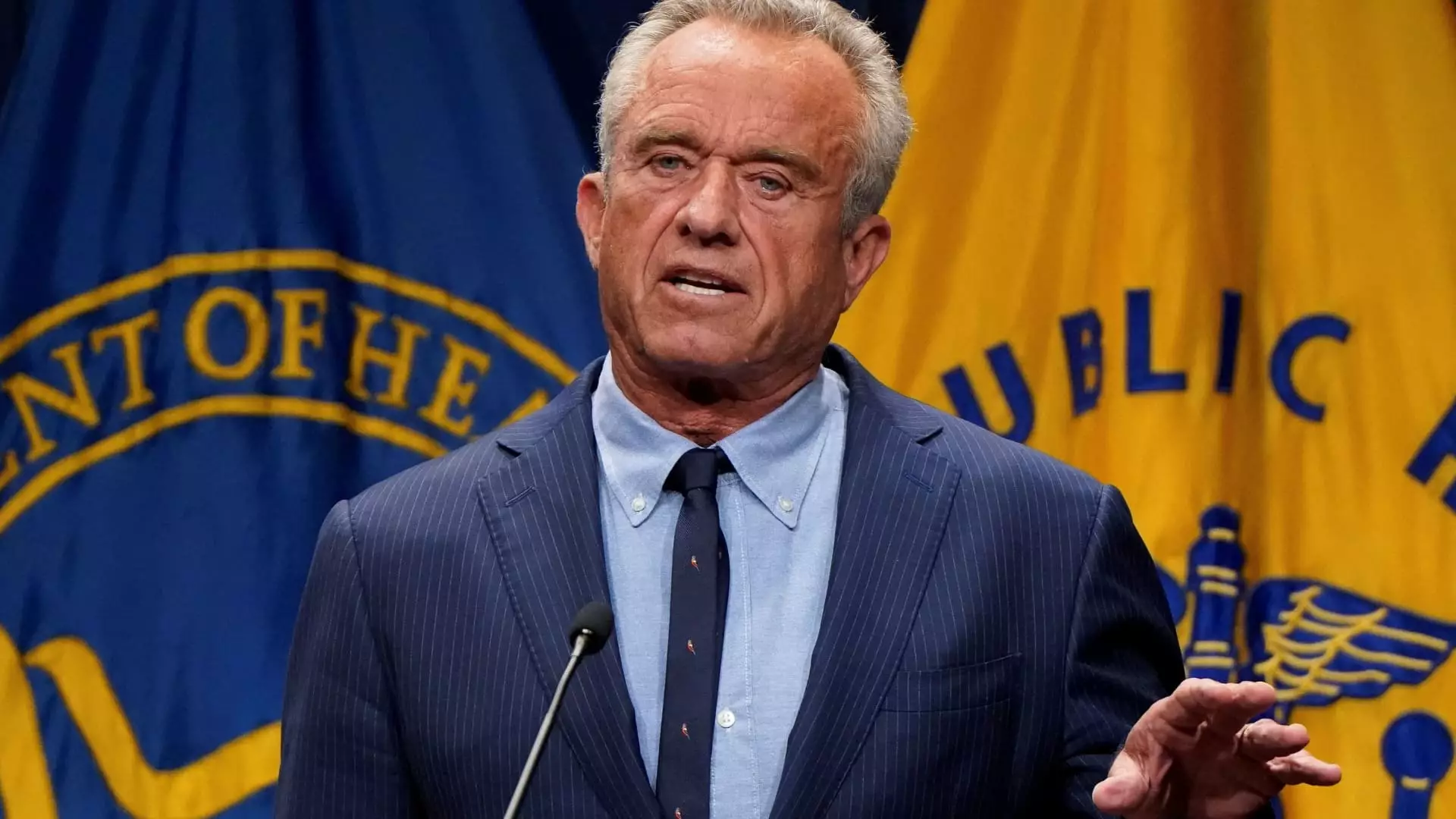In a shocking move that has raised eyebrows and alarm bells, Health and Human Services Secretary Robert F. Kennedy Jr. has dismissed the entire Advisory Committee on Immunization Practices (ACIP), replacing them with a cohort of individuals whose credentials are arguably overshadowed by their controversial stance on vaccinations. This decision, seemingly spurred by a personal vendetta against mainstream public health wisdom, reflects a troubling shift in the administration’s approach towards vaccination policy at a time when maintaining the integrity of these measures is more critical than ever. It’s not merely troubling; it is a blatant disregard for established scientific consensus and an unprecedented assault on public health.
Kennedy’s new picks include well-known critics of vaccination, including Dr. Robert Malone, who controversially claims to be a pioneer of mRNA technology but has strayed far from the realms of science-based public health. Such appointments send a clear message: skepticism towards vaccinations is not just tolerated but rewarded. The prior members of the ACIP had been chosen for their substantial expertise and commitment to evidence-based practices. The abrupt dismissal raises serious concerns about the qualifications of the newly appointed advisors who might ultimately determine the vaccination landscape in the United States.
The Arms of Misinformation
The ramifications of Kennedy’s actions are profound and potentially disastrous. Public health experts have voiced their outrage, indisputably labeling this restructuring as a “national tragedy” for children’s health. Lawrence Gostin, a prominent figure in public health law, articulated that the new committee could endanger children’s lives, undermining years of progress in immunization efforts. Misinformation, particularly in the context of public health, can have dire consequences. The mere presence of these individuals, who possess a known anti-vaccine sentiment, on a governing body that shapes vaccination policy undermines the enormous scientific efforts to eradicate preventable diseases.
Arguments posited by new committee members often lack a foundation in reality, as evidenced by Malone’s unfounded claims about vaccine-related deaths being attributed to medical errors rather than the vaccines themselves. Such statements, devoid of credible evidence, sow doubt and chaos among already hesitant parents. The presence of influential figures like Malone can easily distort public perception, as they command significant platforms to amplify their discordant narrative on vaccines. In an age where misinformation spreads like wildfire via social media, the potential for harmful repercussions is terrifying.
A Clear Path to Reduced Trust in Vaccination
Critics, including pediatric expert Dr. Paul Offit, have forewarned of a decline in the quality of advice emanating from ACIP. The implication here is damning: if these newly appointed members bring their anti-vaccine ideologies into mainstream policy discussions, the recommendations that arise could be rooted in bias rather than science. This calls into question not only the integrity of the committee but also the health of countless American children, who will suffer the consequences of diluted vaccine recommendations.
Moreover, the newly formed committee might use their positions to establish unfavorable policies, leading to fewer vaccines being recommended for routine use. This trend is particularly concerning given the rising outbreaks of diseases that had been nearly eradicated due to previous vaccination efforts. The recent uptick in measles cases is a stark reminder of how precarious our situation remains, yet the policy shift could pave the way for further outbreaks.
Ideology Disguised as Science
Kennedy’s declarations about the members being “highly credentialed scientists” are laden with irony, as many of these individuals have openly criticized the scientific consensus around vaccinations. Dr. Joseph Hibbeln’s history as a psychiatrist or Dr. Martin Kulldorff’s biostatistical background may suggest expertise, but their comments and affiliations with anti-vaccine movements raise alarm about their suitability to influence public health policy. Such ironies highlight a disturbing trend where ideological beliefs, rather than expertise, are prioritized in critical discussions about public health.
It’s essential to recognize that the skepticism towards vaccines entrenched within this new advisory group is not merely academic; it morphs into a pernicious force that can unravel the hard-won advancements in vaccine science. Allowing individuals with known biases to dictate vaccine policy represents a diversion from rational decision-making that weighs pros and cons based on data, leaning instead towards a politicized agenda shrouded in thinly-veiled misinformation.
A Wake-Up Call for Collective Action
The formation of this new committee should serve not just as a point of contention but as a rallying cry for public health advocates, organizations, and concerned citizens to come together and firmly express their opposition against such regressive policies. It serves as an urgent reminder of the ongoing battle between science and misinformation, illuminating how critical it is to uphold the values of rigorous scientific inquiry in the realm of public health. The stakes have never been higher; this is not just about vaccines—this is about the future of public health in the United States. The American public deserves a return to a prudent, science-based approach to vaccination policy, unencumbered by ideology and misinformation.

